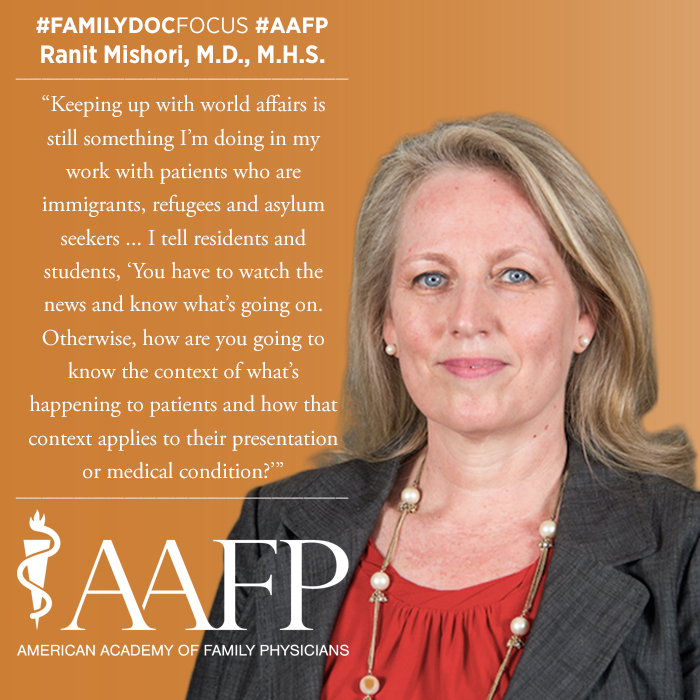Caring for People Affected by War
December 17, 2018, 11:33 am David Mitchell – Ranit Mishori, M.D., M.H.S., knew as a teenager that she was interested in a career in medicine, but as an Israeli citizen, she was obligated to first complete military service. As an 18-year-old, Mishori found herself producing interviews with heads of state and covering Middle East conflicts for Galatz, the nationwide radio network operated by the Israel Defense Forces.

"It was an exciting time for me," she said. "The adrenaline rush of working on breaking news and meeting deadlines was really something. After I was discharged, I liked it so much I started working for a British/American news agency."
During a 10-year career in journalism, Mishori worked as a reporter, a radio and TV producer, and a TV editor, covering natural disasters, politics and terror attacks from offices in Jerusalem, New York and London. She covered wars on four continents.
"Conflict reporting was most interesting to me," she said. "Growing up in Israel in the shadow of the Israel-Palestine crisis, I lived through a couple of wars and numerous terrorist attacks. It has been part of my daily life. That's always an area of interest. It's something I'll always take with me."
Mishori said that although she loved journalism, medicine was "always in the back of my mind." During her reporting from war zones, news crews often traveled with groups such as Doctors Without Borders and in caravans that included United Nations medical personnel.
"I watched them and asked myself, 'Why am I risking my life behind a camera when others are doing the real thing, caring for people who are affected by war?'" she said.
Mishori, who had studied linguistics and communication in college, went back to school to take classes that would prepare her for medical school. She later earned a master's degree in health science from Johns Hopkins Bloomberg School of Public Health and her medical degree from Georgetown University School of Medicine. She completed her training at the Georgetown University-Providence Hospital Family Medicine Residency, where she now is an attending physician.
Mishori said many of the skills that served her well as a journalist are still invaluable to her as a physician.
"Talking to people, listening to patients telling you their stories about their health is the same as interviewing people for a news story," she said. "Giving an attending a summary of a patient's health is similar to putting together a summary for a newspaper article."
Mishori's experiences as a journalist have influenced her broad interests as a physician. She is the director of global health initiatives for the Georgetown medical school's Department of Family Medicine and faculty adviser for Georgetown's asylum program. She also works with Physicians for Human Rights, including with the organization's program on sexual violence in conflict zones and its asylum program.
Mishori, who founded Georgetown's program on health, media and primary care and directs the school's Health and Media Fellowship, said it's important for physicians to be knowledgeable about current events.
"Keeping up with world affairs is still something I'm doing in my work with patients who are immigrants, refugees and asylum seekers, knowing where they're coming from and knowing why they're here," she said. "I tell residents and students, 'You have to watch the news and know what's going on. Otherwise, how are you going to know the context of what's happening to patients and how that context applies to their presentation or medical conditions?'"